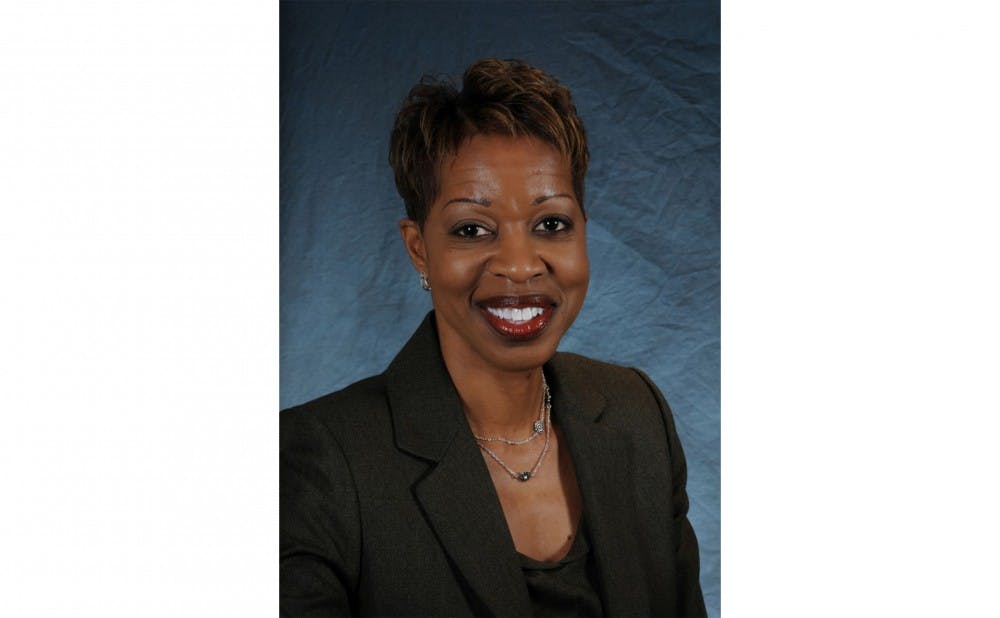Increasing support for faculty members was one of Valerie Ashby’s main goals when she arrived at Duke, and in her second semester as dean of the Trinity College of Arts and Sciences Ashby is leading several efforts to meet that goal.
In Fall 2015, Trinity launched a faculty mentoring program to help tenure-track assistant professors prepare for potential promotions. The college has also instituted leadership training for department chairs and program directors, and Ashby—who joined Duke in July after serving as chair of the chemistry department at the University of North Carolina at Chapel Hill—has convened monthly meetings with department chairs.
“It’s all about excellence. You don’t just leave excellence to chance,” Ashby said. “If you want excellence, you have to be intentional.”
David Morgan, chair of the religious studies department, wrote in an email that mentoring has proved beneficial for assistant professors.
“My sense is that the assistant professors in my department deeply appreciate the care their colleagues take in working with them and that the effort at collegiality is never wasted,” he wrote.
Each department has flexibility to design and implement the mentorship program, A. Craig Burnside, chair of the economics department, wrote in an email. He also noted that the program has been well-received.
“My impression is that our assistant professors are happy with what we’re doing now and were doing before I became chair,” he wrote.
Ashby noted that she hopes to expand the mentoring program moving forward to include associate professors becoming full professors this Spring and to professors of the practice and other non-tenure track faculty later in the Spring or in the Fall.
Faculty leadership was one of the areas Ashby identified when she first arrived at the University as an area for improvement.
“We really had not been doing any leadership development with our chairs on a regular basis,” Ashby said. “It’s a pretty big job that they have.”
Hiring practices and the success of new mentorship programs are among the topics discussed by chairs at monthly department meetings and at a department chair retreat that takes place at the beginning of the Fall semester, Ashby explained. Such conversations allow faculty to share best practices with each other, she noted.
“All those things you’re not supposed to know how to do,” Ashby said. “You’re a scholar, you’re not an administrator.”
One benefit of the program is that it will develop leaders who are not already in leadership positions, but could become future department chairs or program directors, Ashby noted. She explained that the administration wants to help refocus some of the efforts of department chairs away from certain managerial duties that take up much of their time to let them shape the broader visions of their departments.
Charles Piot, chair of the cultural anthropology department, wrote in an email that he has found the meetings useful.
“They take you out of your departmental silo and put you into dialogue with other chairs around issues of common interest,” Piot wrote. “I always enjoy seeing and hearing from the other chairs.”
Ashby explained that another reason training is important is that Trinity is unlikely to expand its faculty size any time soon.
“Some departments probably need to be a little bigger and some departments need to be a little smaller,” she said. “The question is how do we take those people and move them forward as opposed to how do we move forward by adding more people.”
The decision to try to keep faculty size relatively constant is the continuation of a model pushed for by Laurie Patton—Ashby’s predecessor—after the college added 100 faculty members before the economic recession of 2008, Ashby said. The University’s current student-to-faculty ratio is 7:1.
“We can increase our excellence without growth,” Ashby said. “We’re not going to grow but we are going to change.”
Get The Chronicle straight to your inbox
Signup for our weekly newsletter. Cancel at any time.
Adam Beyer is a senior public policy major and is The Chronicle's Digital Strategy Team director.

